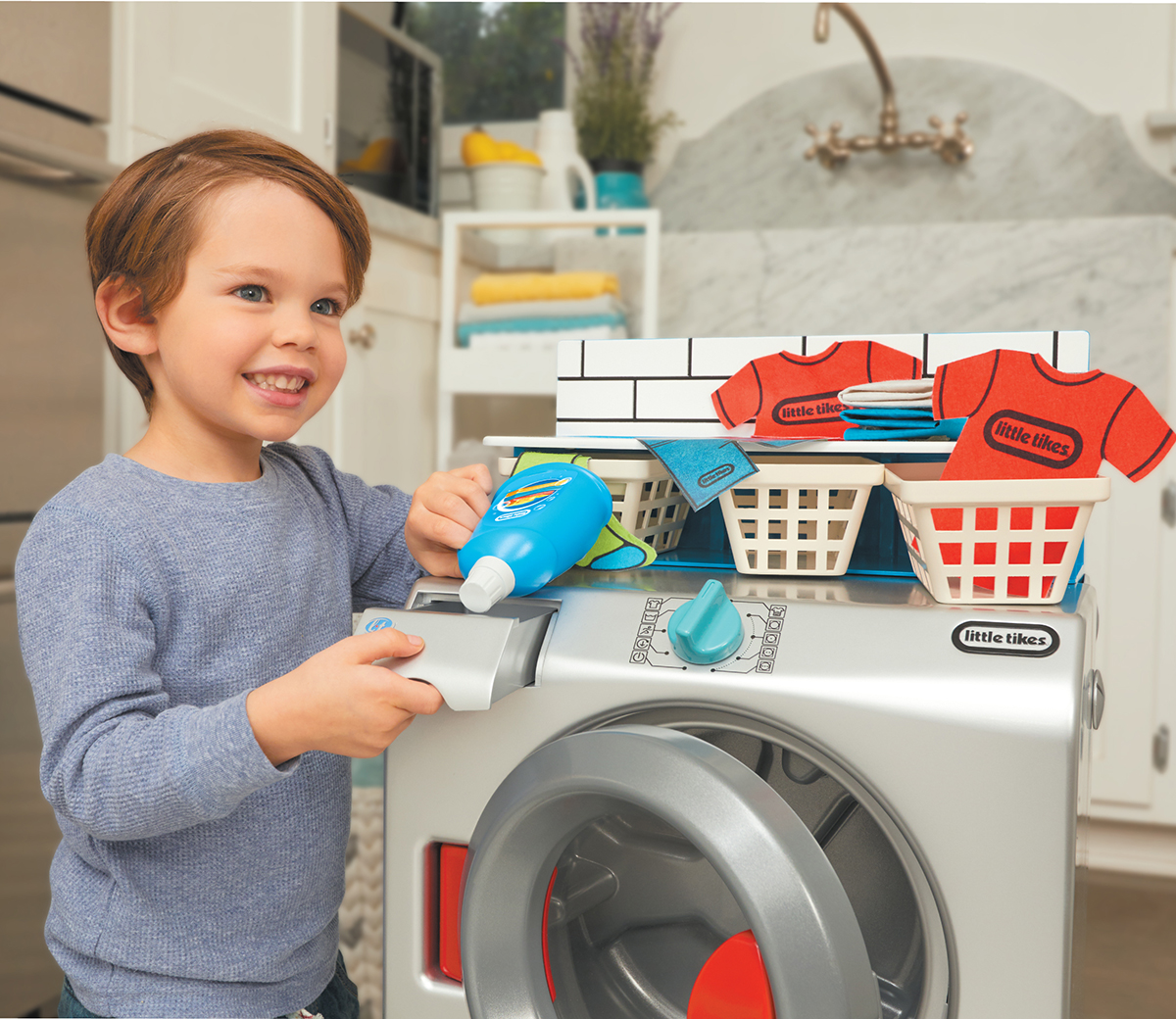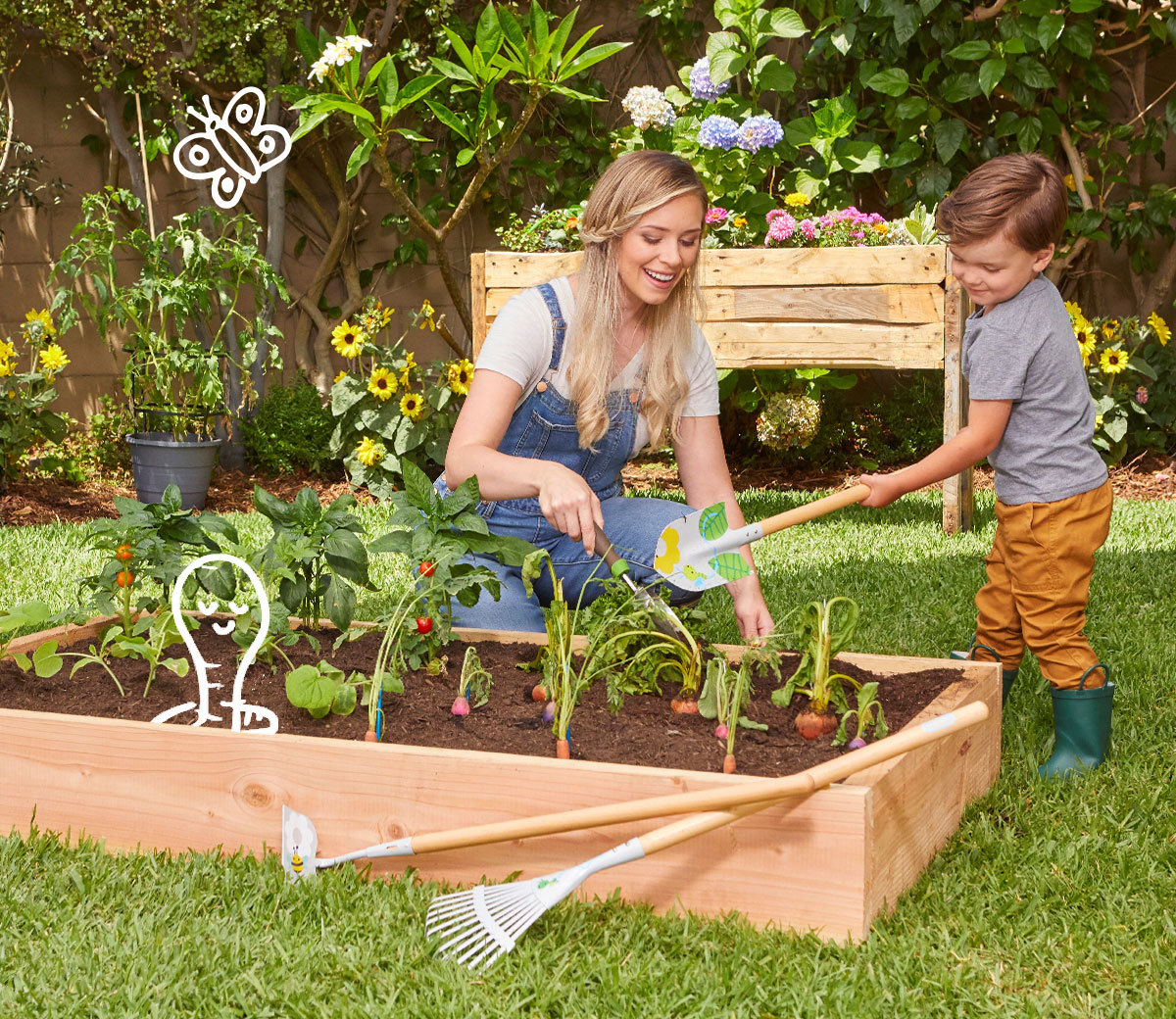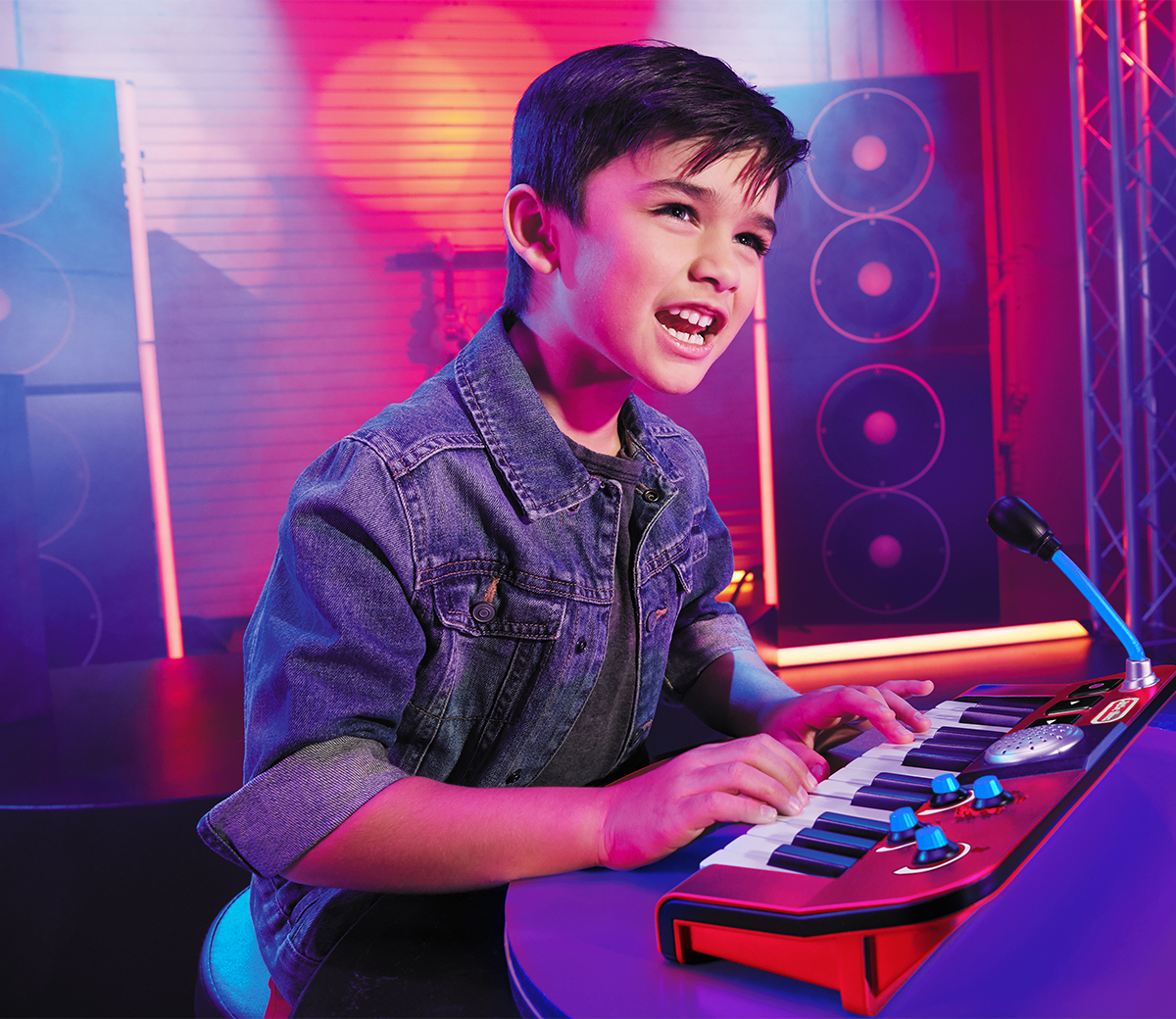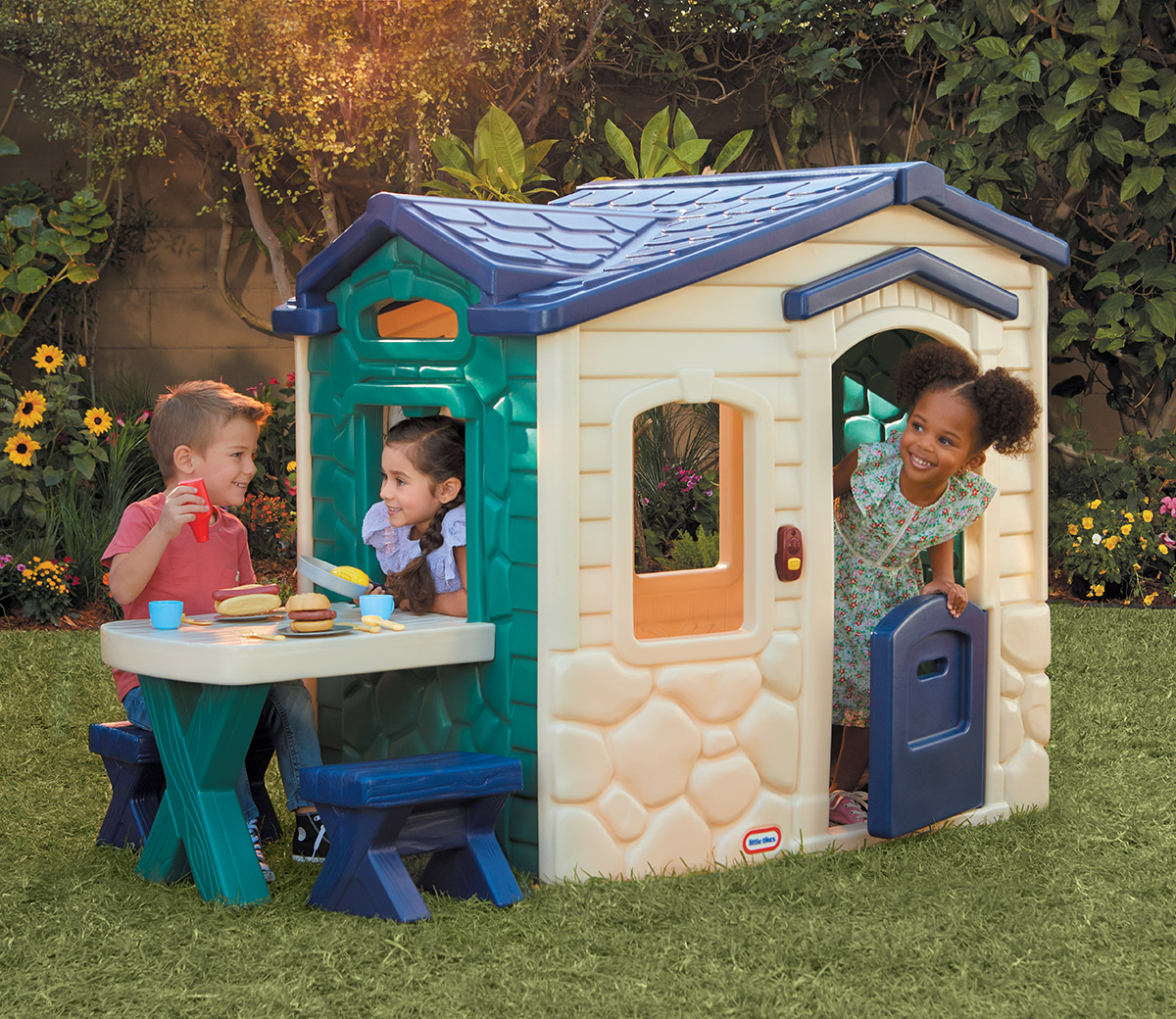The importance of role play in child development
Role play in early years gives children the opportunity to stretch their imagination, mimic family members in everyday scenarios and generally develop a better understanding of the world around them. Here, we explain what role play involves, what the benefits of role play in early years are, and pick out some top role play toys.
What is role play in early years?
From around the age of 18 months, little ones begin to explore boundaries and develop their own identity. Imaginative play, or creative role play in the early years, involves changing behaviour to assume a different role and is a fantastic way to encourage your child’s growing independence and comprehension of their surroundings.
What are some examples of role play in early years?
Whether they’re being a rockstar on their My Real Jam Drums, a shopkeeper with the First Self-Checkout Stand or a parent putting baby to bed, there are endless examples of role play – each requiring your little tike to put themselves in someone else’s shoes. Alongside developing their sense of empathy and responsibility, this type of pretend play demonstrates their learning by observation and allows them to act it out in a safe environment.
What are the benefits of role play in early years settings?
So, why are role play toys so popular? Read on to discover the benefits of role play in early years settings, along with some role play toys to support your little one’s growing imagination.
Role play encourages imagination and creativity

Pretend play is a crucial component of a child’s development. They think they’re simply having fun but actually, they’re also developing a plethora of skillsets that will set them up for life. It’s a given that little ones have to use their imagination in pretend play – that in itself reaps huge rewards as they are exercising their brain. They’re taking their very limited understanding of the world around them and applying it to an imaginary scenario, demonstrating an ability to visualise a situation as well as nurture arising curiosity.
Role play cultivates social and emotional intelligence

Role play is great for assessing children’s understanding of real-life roles and the emotions that can come with them. By stepping into different characters (whether that’s professions, TV personalities or family members), they learn all about that role and how they fit into the world. Through this experimenting they develop empathy and learn to recognise (and regulate) certain feelings. They learn to consider someone else’s perspective, negotiate ideas and assign tasks to other children in the group.
Role play also instils in children the thinking that by pretending they can be absolutely anything, which builds confidence and a sense of freedom for them to experiment. Look to toys like Tikes Patrol Police Car or kids’ toy First Oven for props to help them into the role play and accelerate that creativity. The First Self-Checkout Stand is another fantastic item for teaching them about everyday life and the different roles about town.
Role play develops problem-solving skills

Whichever scenario your little one acts out, there’ll more than likely be a problem to solve or tricky situation to navigate. They’ll learn and practice negotiation skills and develop a better understanding of turn-taking and sharing. Little ones can then use this new-found skill to better deal with, and overcome, difficult situations in the future.
Role play builds physical strength

Role play is a very physical form of play with lots of movement and exercise involved. As they get active as a policeman on the beat, a chef cooking up a storm or pilot flying their plane, you’ll notice how they’re developing their gross motor skills as much they are their imagination. A physical and active lifestyle is extremely important at this age and various role play toys can facilitate this. A playhouse can encourage them to busy themselves with ‘chores’ and ensure their garden is kept trim, for example.
Role play toys are a great – and necessary – way to help little ones develop imagination, embrace creativity and learn about their surroundings. And the best bit for us adults is watching where their imagination takes them.
